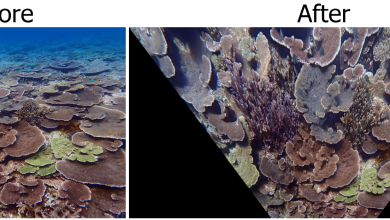Jin Named Recipient of Early-Career Research Fellowship
Chungkuk Jin, an assistant professor in ocean engineering and marine sciences, has been named one of 10 national recipients of The Gulf Research Program’s Early-Career Research Fellowship
The Gulf Research Program is an independent, science-based program founded in 2013 as part of legal settlements with the companies involved in the 2010 Deepwater Horizon disaster. It falls under the purview of the National Academies of Sciences, Engineering, and Medicine.
Jin and four other fellows will join the Offshore Energy Safety track working toward improving the understanding, management and reduction of systemic risk in offshore energy activities. The other five fellows will join the Education Research track.
“Our early-career research fellows are exceptional professionals pursuing innovative and applicable research with the potential to address complex issues challenging the Gulf of Mexico and Alaska regions,” said Karena Mary Mothershed, senior program manager for the Gulf Research Program’s Board on Gulf Education and Engagement. “We are excited to welcome these new cohorts of fellows and look forward to supporting them as they continue to innovate, collaborate and implement research that will have a lasting impact on the region.”
The fellowship program helps researchers during the critical pre-tenure phase of their careers. Fellows receive a $76,000 financial award along with mentoring support to provide them with independence, flexibility and a built-in support network as they take risks on untested research ideas, pursue unique collaborations and build a network of colleagues.
Jin came to Florida Tech in August 2022. His research focuses on the development of digital twin models for offshore oil and gas platforms to assess structural and human safety. He has developed computer simulations to see how oil platforms, wind turbines and other offshore-energy infrastructure will hold up in rough seas. In addition, he has developed weather monitoring and prediction systems using sensor measurements. He has also focused on machine-learning applications to solve ocean-engineering problems, such as inverse current and wave estimation and failure and stress monitoring of floating structures using sensors.
“Dr. Jin has only been at Florida Tech for a year, and he is already making substantial contributions to the field of offshore-energy engineering,” said Richard Aronson, head of the department of ocean engineering and marine sciences. “We expect great things from him, and he is already delivering.”
Jin received his B.E. and M.E. in marine system engineering at Korea Maritime and Ocean University and his Ph.D. in ocean engineering at Texas A&M University, where he received an Outstanding Graduate Student Award.
The National Academies of Sciences, Engineering, and Medicine are private, nonprofit institutions that provide independent, objective analysis and advice to the nation to solve complex problems and inform public policy decisions related to science, engineering, and medicine. They operate under an 1863 congressional charter to the National Academy of Sciences, signed by President Lincoln.





